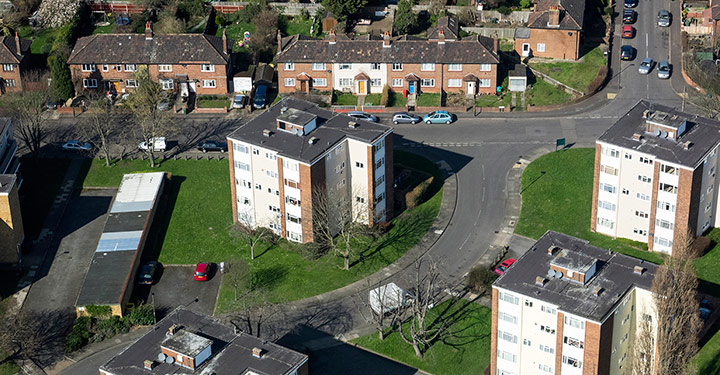Study confronts social housing stereotypes
-
Research
- Justice and Equality
Posted on 6 January 2015
We’ve helped debunk the common myths that some social housing residents lack aspirations, are unemployed and rely on benefits, in a groundbreaking study.

This has shown that social housing fosters aspiration: people ...see it as a pathway to financial independence.”
Led by Dr Julie Rugg, from York’s Centre for Housing Policy, the research found that social housing residents have a strong commitment to work and high levels of aspiration, often despite difficult family circumstances and personal vulnerability.
In a survey of over 1,500 social housing residents in London, the study also showed that migrants and single parents have no advantage in the allocation of housing.
House of Commons
Published in the Real London Lives report, the research was commissioned by the g15 - a group of London’s largest housing associations - and is the first qualitative report from a three-year study by the University of York.
Dr Rugg, who recently presented the report at the House of Commons, said: “We found that two thirds of residents, who could reasonably be expected to work, do. Despite this, however, three quarters were faring no better than holding steady financially, given the nature of their work, hours and levels of pay.
“We also discovered that respondents generally wait a long time to secure a social housing tenancy and, consequently, place a high value on it.”
The report also showed that social housing tenancy was seen as supporting people through many of the challenges of life, protecting and strengthening the family unit, insulating against shocks which might otherwise lead to homelessness, and offering the opportunity to aspire and to achieve independence from benefits.
Lazy stereotypes
Mark Rogers, CEO of Circle Housing and Deputy Chair of the g15, said: “The lazy stereotypes about social housing residents are simply wrong.
"There are people in professional careers, people working part time, people on zero hours contracts, some holding down two jobs, others in training, and some with no real prospect of employment due to physical or mental health problems.
“This research shows there are no easy answers for policy makers. Social housing residents are not ‘shirkers’, but a diverse, complex mix of ordinary households trying to get by and thrive in the best way they can.
"Together, we must use this evidence to make informed policy decisions and have a collective responsibility to ensure that the voices of this diverse community of Londoners are heard.”
Dr Rugg added: “This is a hugely important study, because it shows that social housing isn’t an end point. For many people, it’s a beginning. We have had so many studies that talk about social housing as a ‘poverty trap’. This research has shown that the sector fosters aspiration: people want social housing because they see it as a pathway to financial independence.”
The text of this article is licensed under a Creative Commons Licence. You're free to republish it, as long as you link back to this page and credit us.

Dr Julie Rugg
Research Title: Senior Research Fellow
Dr Rugg has completed work including qualitative research on welfare and its impact on claimant and landlord behaviour.
Discover the details
Find out more in the York Research Database
Report
Visit us
Explore more research

A research project needed to spot trees on historic ordnance survey maps, so colleagues in computer science found a solution.

We’re using gaming technology to ensure prospective teachers are fully prepared for their careers.

A low cost, high-accuracy device, could play a large part in the NHS's 'virtual wards'.
